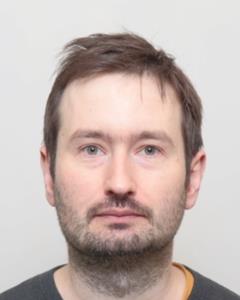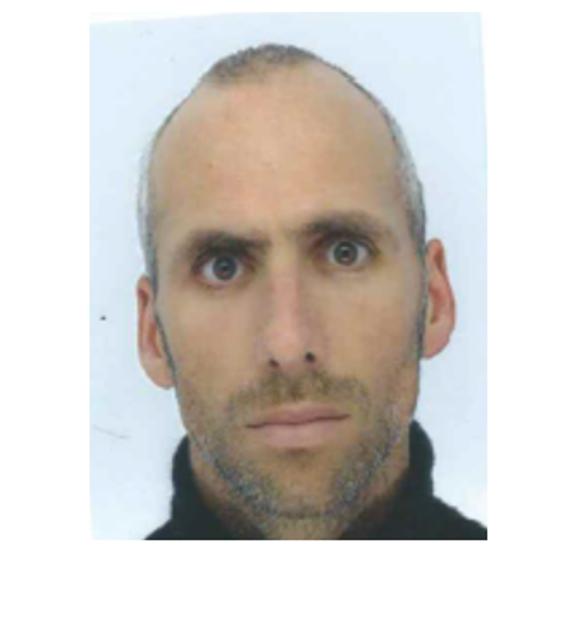
Scientific Fundamentals Department
The Foundations of Science
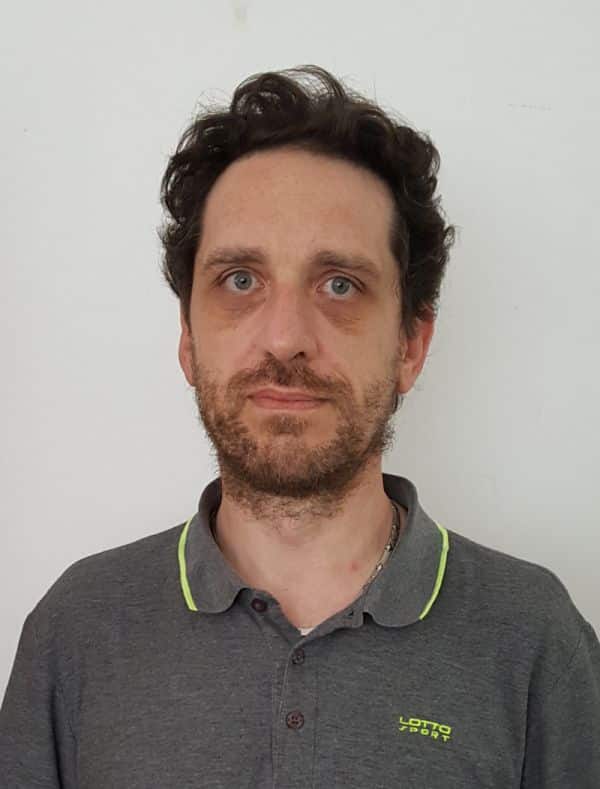
The Scientific Fundamentals Department, affiliated with the Programme Management Department:
- organises courses in mathematics, physics-chemistry and electronics,
- develops its own research activities on probability and statistics (applications in the fields of telecommunication network modelling, long-range connections in D2D networks, and the geometry of social networks via hyperbolic random graphs) and contributes to the research activities of the school’s CERI centres and some research laboratories from the University of Lille,
- contributes to other activities related to other school entities.
The department is composed of 13 professors and research professors, including six faculty members from the University of Lille who work at IMT under the partnership agreement:
- 6 permanent staff in mathematics;
- 7 permanent staff in physics and electronics.
The Scientific Fundamentals Department is involved in the preparatory programme and in initial training for students, lifelong learning courses, and apprenticeship telecommunications and computer science programmes. Given the fundamental nature of the department’s courses, they are taught at early on for students in initial or lifelong learning programmes in order to provide the foundations they need for the more specialised courses taught at the end of the programme. It also helps lead the MOOC for the general public and provides the general services of supervising students and apprentices and managing the selection exams.
It can also issue reports and analysis for management or any other entity of the school and can develop relevant tools.
The research developed within the Scientific Fundamentals Department focuses on the study of emerging macroscopic properties in complex stochastic models described at the microscopic scale.
More specifically, our topics of study are as follows:
- Random graphs, stochastic geometry and point processes;
- Discrete and continuous percolation models;
- Application of percolation to the description of connectivity phenomena in Device-to-Device telecom networks;
- Random trees, large random trees and statistics for hierarchically structured data
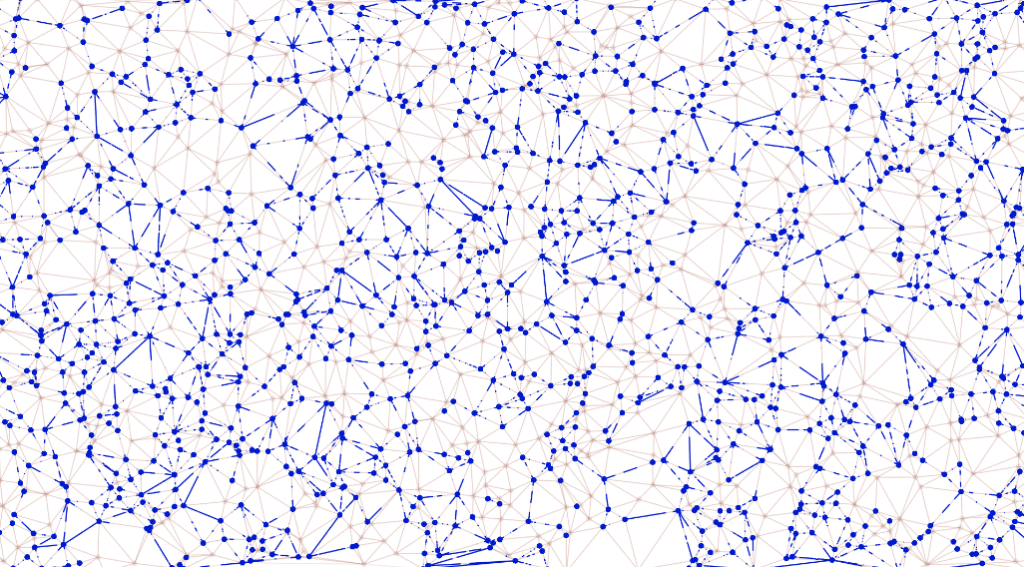
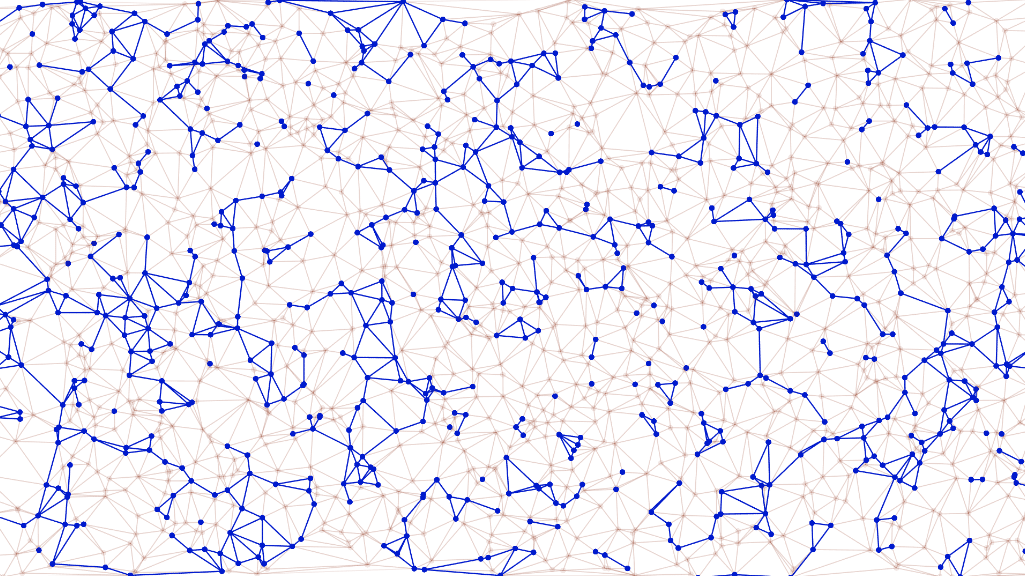
D2D network simulations under different connectivity assumptions
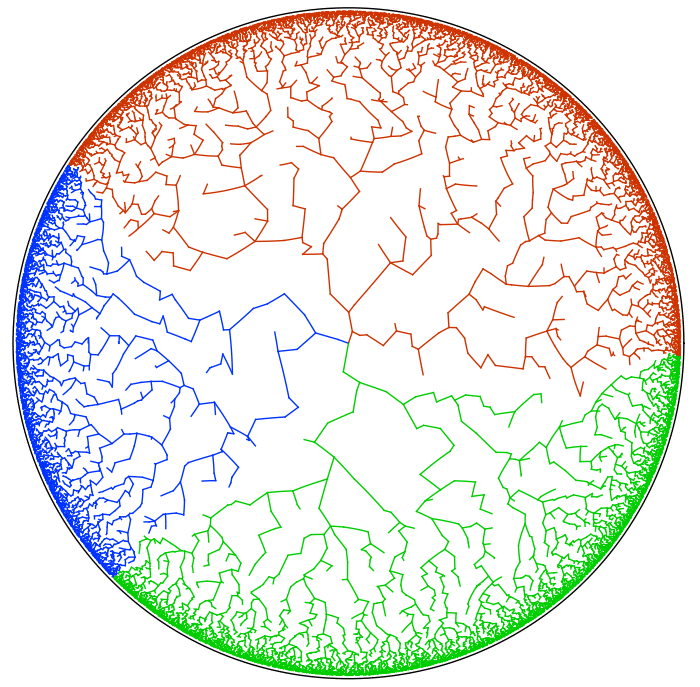
Radial Spanning Tree in the hyperbolic Poincaré disk
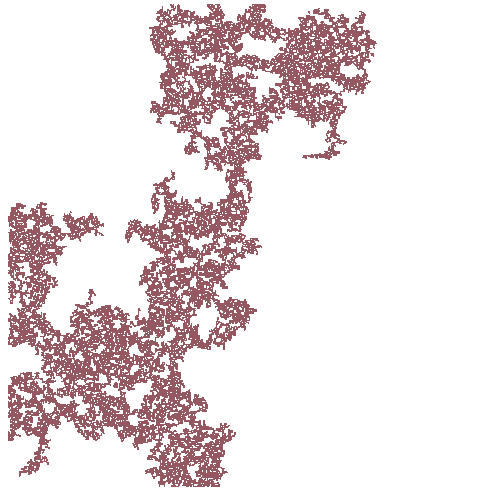
Oriented percolation to near-critical minority degree


